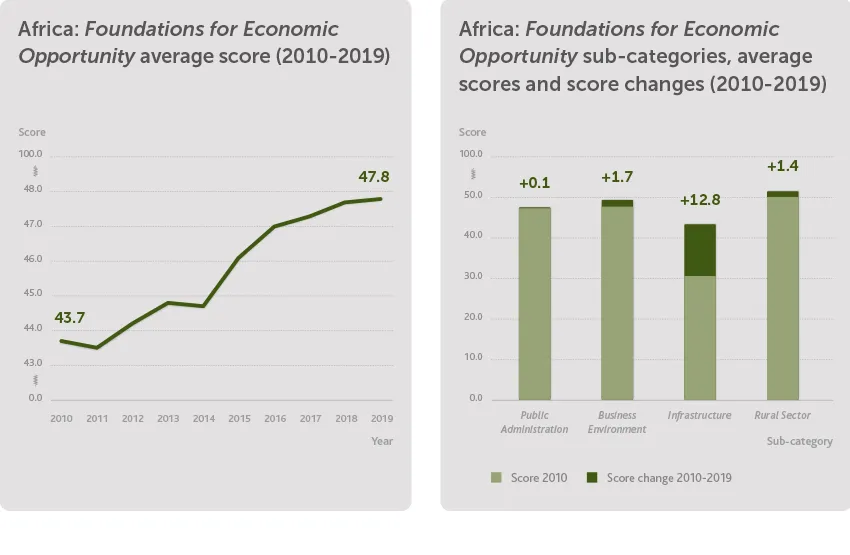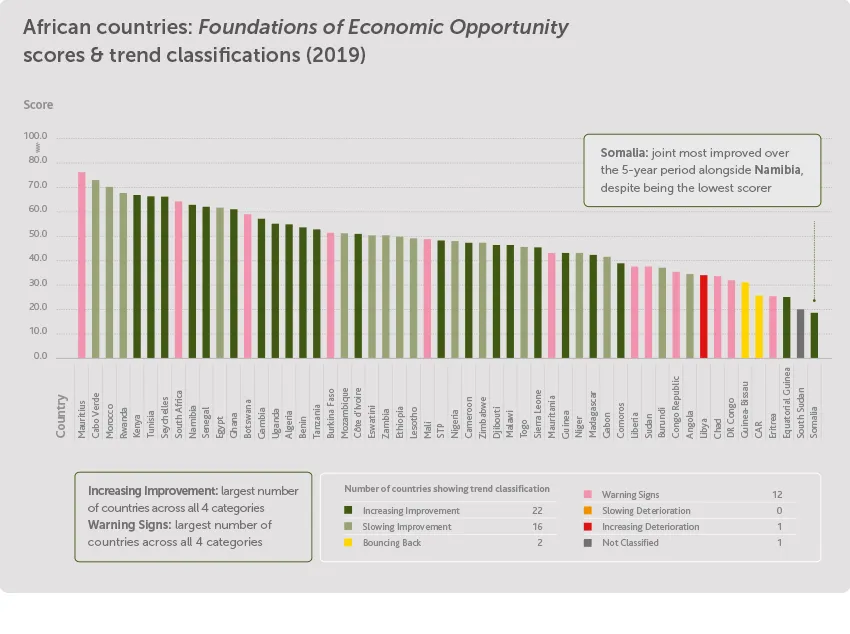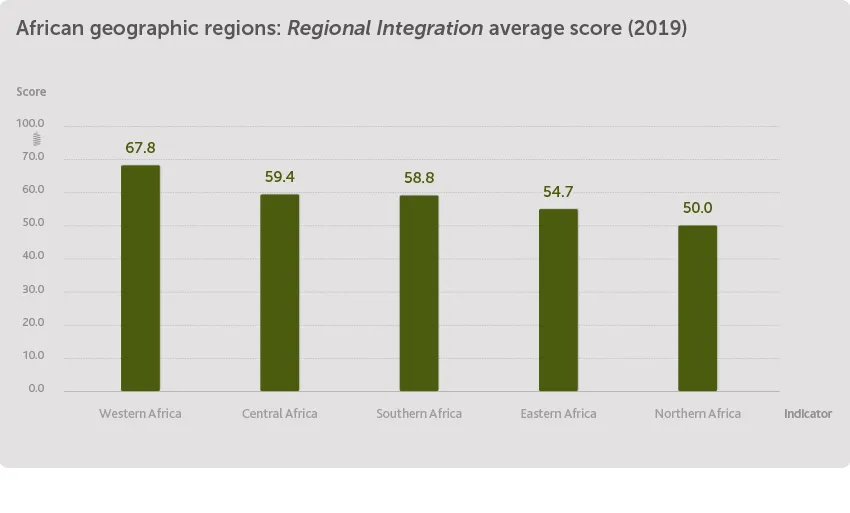Business and economic findings from the IIAG
22 February, 2021
The global economic fallout of the coronavirus pandemic has sent the African continent into a historic recession, with 41 countries experiencing a decline in their gross domestic product (GDP) across 2020. However, simultaneously the historic launch of the African Continental Free Trade Area (AfCFTA) is the cause of much optimism, providing a platform to deepen regional integration and address the underlying structural issues the pandemic laid bare.
The 2020 Ibrahim Index of African Governance (IIAG) assesses the economic foundations of 54 African countries in the Foundation for Economic Opportunity (FEO) category, across four sub-categories: Public Administration, Business Environment, Infrastructure and Rural Sector.
The IIAG analyses the platforms upon which economic opportunity is built, looking at governance inputs rather than specific outputs such as GDP or unemployment that are subject to exogenous shocks. By analysing IIAG data trends, it is possible to review the underlying foundations of African economies up until 2019, shortly before the onset of the coronavirus pandemic.
Economic foundations improving over the decade, up until COVID-19
Foundations for Economic Opportunity is the most improved category in the IIAG at the African average level, with a score increase of +4.1 over the ten-year period (2010-2019). The overall rate of improvement in this category has almost remained stable, although it has slowed very slightly in the mid-period (2015-2019). However, with a score of 47.8 in 2019, it still only ranks third out of four IIAG categories.

Growth of digital and communications infrastructure, but concerning trends for labour relations
Infrastructure (+12.8) has been the main driver of improvement, thanks to the proliferation of accessible and affordable mobile phones and internet, and an increasing share of households with a computer and secure, fast internet access. Provision of energy has also substantially improved, with the share of Africans with access to electricity growing at an increasing rate. However, these gains mask declines in parts of the transport network such as air travel and postal services.

On the flipside, progress in the Public Administration (+0.1) sub-category has almost stalled, with a decline in budgetary and financial management, as well as the capacity of national statistics systems offsetting progress in other areas such as taxation capacity. Across all four sub-categories, the most concerning trends relate to the labour force, with trade union freedoms in decline and increasing friction between employers and employees.

All countries but three improved between 2010 and 2019
Between 2010 and 2019, 50 countries improved their score in Foundations for Economic Opportunity, more than in any other IIAG category. For 22 countries, the rate of improvement has even increased since 2015, again more than in any other category.
Only Libya (-4.4), Central African Republic (-3.5) and Guinea-Bissau (-0.8) have seen their scores decline over the decade.
In 2019, Mauritius (76.0) is the top scorer in Foundations for Economic Opportunity, a position it has maintained over the whole decade. Zimbabwe is the most improved country, with an increase of +19.5 between 2010 and 2019, driven by a large improvement in Rural Sector.

West African governments show most active integration efforts prior to AfCFTA launch
The Regional Integration indicator provides an oversight of regional integration efforts prior to the launch of the AfCFTA. The data show that between 2010 and 2019, African governments on average increased their regional integration efforts. In 2019, governments in Western Africa were on average the most active in pushing regional integration, while the Northern African governments were the least active on average. However, of the regional economic communities (RECs), East African Community (EAC) member states outperform Economic Community of West African States (ECOWAS) member states in regional integration efforts.



